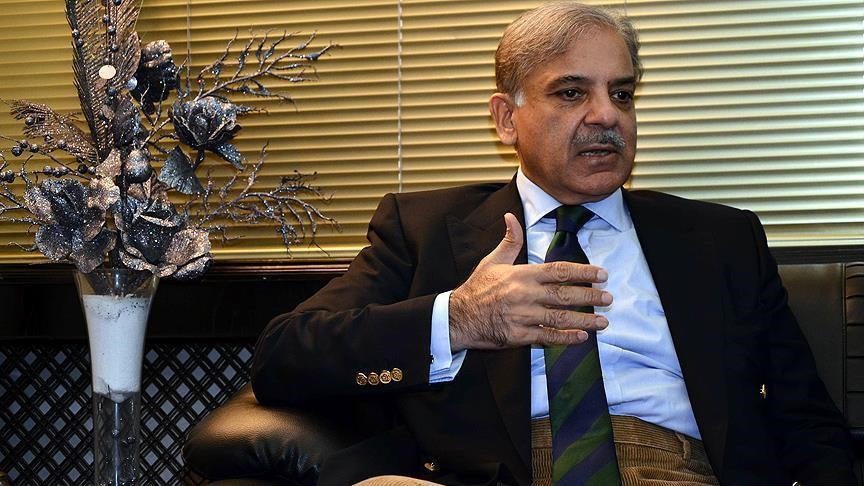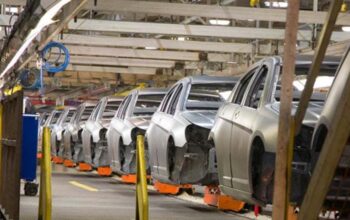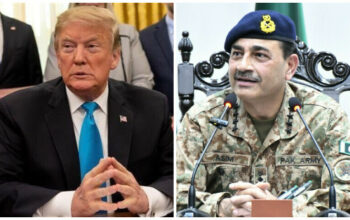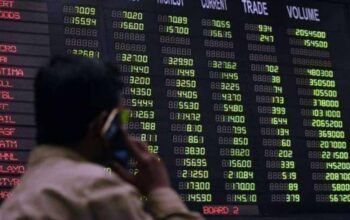By Naveed Naqvi
ISLAMABAD: Prime minister, Shehbaz Sharif, has accused the former premier Imran Khan of being the “the biggest liar on the face of the earth” and injecting poison into society to “dangerously polarise the electorate”, after he was toppled from power earlier this year.
Speaking in `his first interview with Daily Guardian, he spoke unsparingly of the “damage” that Khan, the former cricket superstar who ruled Pakistan from 2018, had done to the country in both domestic and foreign affairs.
Pakistan is currently in the midst of an unprecedented economic crisis, as it grapples with mounting inflation, sky-high foreign debt, declining foreign currency reserves and now more than $30bn of damage after the country was hit by the worst flooding in August, a climate crisis-driven disaster that left 1,600 dead and millions without shelter and clean water.
Sharif, who is the younger brother of the former prime minister Nawaz Sharif and part of one of Pakistan’s most powerful political dynasties, called Khan “a liar and a cheat” whose policies had left the economy in ruins.
He accused Khan, who ran on an anti-corruption manifesto, of conducting the country’s affairs to suit his own personal agenda “in a manner which can be only described as the most inexperienced, self-centred, egotistical, immature politician in the history of this country”.
Khan, who still retains huge popularity among swathes of voters, was removed from power in April this year after no confidence vote which saw many of his allies in parliament turn against him. Khan was found to have violated the constitution in an attempt to stop the vote going ahead, and he also threatened to impose martial law rather than hand over power to the opposition coalition.
Khan made repeated allegations that the vote was a “foreign conspiracy” against him by the US and claimed to have a diplomatic cable to prove it, despite public denials by the US, the military and figures in government, and in private meetings with diplomats.
Sharif, who is the younger brother of the former prime minister Nawaz Sharif and part of one of Pakistan’s most powerful political dynasties, called Khan “a liar and a cheat” whose policies had left the economy in ruins.
He accused Khan, who ran on an anti-corruption manifesto, of conducting the country’s affairs to suit his own personal agenda “in a manner which can be only described as the most inexperienced, self-centred, egotistical, immature politician in the history of this country”.
Khan, who still retains huge popularity among swathes of voters, was removed from power in April this year after a vote of no confidence which saw many of his allies in parliament turn against him. Khan was found to have violated the constitution in an attempt to stop the vote going ahead, and he also threatened to impose martial law rather than hand over power to the opposition coalition.
Khan made repeated allegations that the vote was a “foreign conspiracy” against him by the US and claimed to have a diplomatic cable to prove it, despite public denials by the US, the military and figures in government, and in private meetings with diplomats.
Yet he also made it clear he would be reaffirming Pakistan’s close relationship with China, which reportedly suffered under Khan after he stalled on the China-Pakistan Economic Corridor (CPEC), a multibillion-dollar infrastructure project that is a cornerstone of China’s belt and road initiative (BRI).
There are concerns CPEC is leading Pakistan into a debt trap with China, and mounting local opposition has led to CPEC projects and workers being hit by bomb blasts. Yet, despite the security concerns, and China itself said to be rolling back BRI, Sharif vowed to continue with the project, and will visit China in November, describing the country as “one of the most trusted friends of Pakistan”.
“Make no mistake, CPEC is a project which is not only good for Pakistan’s wellbeing but for the whole region,” he said.
Indeed, many of his policies appear to be a direct continuation of those implemented by his elder brother Nawaz Sharif, who served three terms as prime minister from 1990. In 2017, Sharif was disqualified from office and sentenced to 10 years in jail on corruption charges he said were politically motivated. He was given temporary bail to travel to London for medical treatment in 2021 and never came back. He is now said to control the party from his property in central London, with Sharif making two visits in the past month.
Sharif was open about his brother’s involvement in government. “Of course I consult Nawaz, he is my leader and my older brother,” he said. “But he has given me completely free rein to make decisions.”
Yet the ascension of the Sharifs to power again, ruling in a coalition alongside members of the powerful Bhutto family – former political rivals who came together with 10 other parties in order to defeat Khan – has led some to criticise the return of so-called dynastic politics which has dominated Pakistan for more than four decades.
Maryam Nawaz, who was caught up in her father Nawaz Sharif’s corruption case and sentenced to jail in 2018, was cleared of charges this week and is now expected to return to politics. Bilawal Bhutto, the current foreign minister, is the son of former prime minister Benazir Bhutto, who was assassinated in 2007 and grandson of Zulfikar Ali Bhutto, who was prime minister in the 1970s. Khan has consistently represented himself as the alternative to such dynastic politics, even though many of his top ministers came from political families.
Sharif vehemently rebuffed the criticism. “It’s about competence: it’s about public support, it’s about people’s trust,” he said. “It’s not about dynasty.”
Copyright © 2021 Independent Pakistan | All rights reserved




